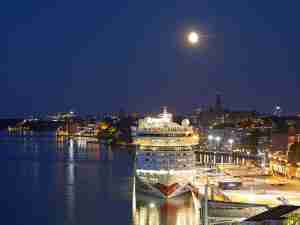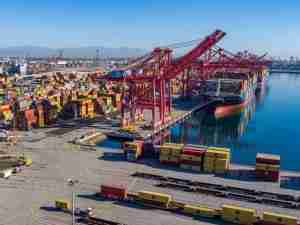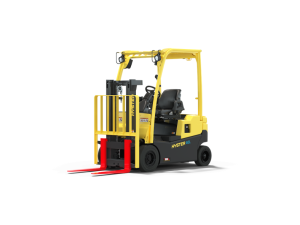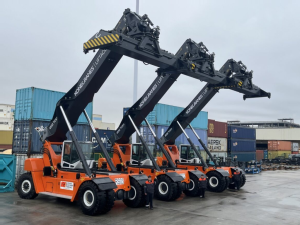The local government-owned company, which includes the ports of Vlissingen and Terneuzen, already has five steel service centres that it leases to private companies. The centres take in steel from plants for cutting and treating to end-users' specifications.
The port is now preparing to add five more service centres as Europe imports greater volumes of basic grades of steel from low-cost areas such as Turkey, the CIS and Asia, leading to a shift of these centres to ports from inland sites.
"We have got a lot of space available, so we are investing in infrastructure for new service centres that will be lent out to commercial operators," said Zeeland Seaports Commercial Manager Marcel Pater in a phone interview.
"Generally service centres are near steel mills, but as the market share of imports through deepsea ports is growing, there is more need of service centres where the products are treated, processed, strengthened. We see a growing market for that. The port will be like a supermarket for metals."
The port has been approached by a number of companies interested in operating service centres on site. The centres will decoil, galvanise and process steel.
"We are in continuous contact with a number of interested parties," Pater said.
Some of the existing centres are owned directly by steelmakers such as Finland's Outokumpu, while others are operated by independent companies.
"The reason for them to come here is that steel trade is more and more concentrated around ports rather than inland," Pater said.
Growing Imports
Zeeland Seaports, the third-largest seaport company in the Netherlands, registered a nearly 40 percent increase in metal products handled in 2010 from the previous year. The growth rate will be high again in 2011, Pater said.
The strategic geographic position of its ports, which offer easy accessibility and short turnaround times, is boosting the activity, he said.
Inland service centres, generally located near steel plants, have been suffering as European steel mills struggle to compete with cheaper foreign competitors.
All the major European steel producers, including ArcelorMittal, the world's largest, have cut production significantly and in some cases permanently in the past few months to tackle overproduction and falling demand.
As European producers start to focus on more value-added products and more basic grades are imported, Zeeland Seaports is preparing to handle lower volumes of bulk raw materials imports and greater volumes of semi-finished steel products such as slabs and flat rolled steel in coils, Pater said.
Steel production in Western Europe is likely to halve in the next 20 years as most basic grade steel production migrates from Europe to lower cost countries, the chairman and CEO of Austrian steelmaker Voestalpine told Reuters earlier this year. (Reuters)










